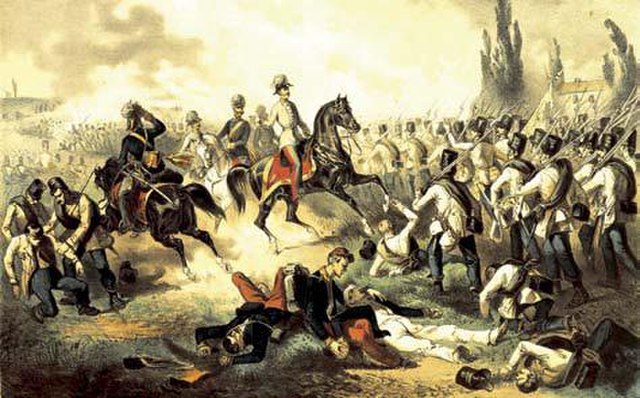The Austrian Empire, officially known as the Empire of Austria, was a multinational European great power from 1804 to 1867, created by proclamation out of the realms of the Habsburgs. During its existence, it was the third most populous monarchy in Europe after the Russian Empire and the United Kingdom. Along with Prussia, it was one of the two major powers of the German Confederation. Geographically, it was the third-largest empire in Europe after the Russian Empire and the First French Empire.
Greatest extent of the Austrian Empire (1846–1859)
Karl von Schwarzenberg and the monarchs of Austria, Prussia, and Russia after the Battle of Leipzig, 1813
The Battle of Komárom during the Hungarian Revolution, 1849
Austrian Emperor Franz Joseph with his troops at the Battle of Solferino, 1859
A great power is a sovereign state that is recognized as having the ability and expertise to exert its influence on a global scale. Great powers characteristically possess military and economic strength, as well as diplomatic and soft power influence, which may cause middle or small powers to consider the great powers' opinions before taking actions of their own. International relations theorists have posited that great power status can be characterized into power capabilities, spatial aspects, and status dimensions.
Great powers are recognized in several international structures, including the United Nations Security Council.
In the mid-19th century, German historian Leopold von Ranke attempted to scientifically document the great powers.
The "Big Four" at the Paris Peace Conference of 1919: David Lloyd George, Vittorio Emanuele Orlando, Georges Clemenceau, and Woodrow Wilson
The "Big Three" of Europe at the Yalta Conference: Winston Churchill, Franklin D. Roosevelt, and Joseph Stalin








